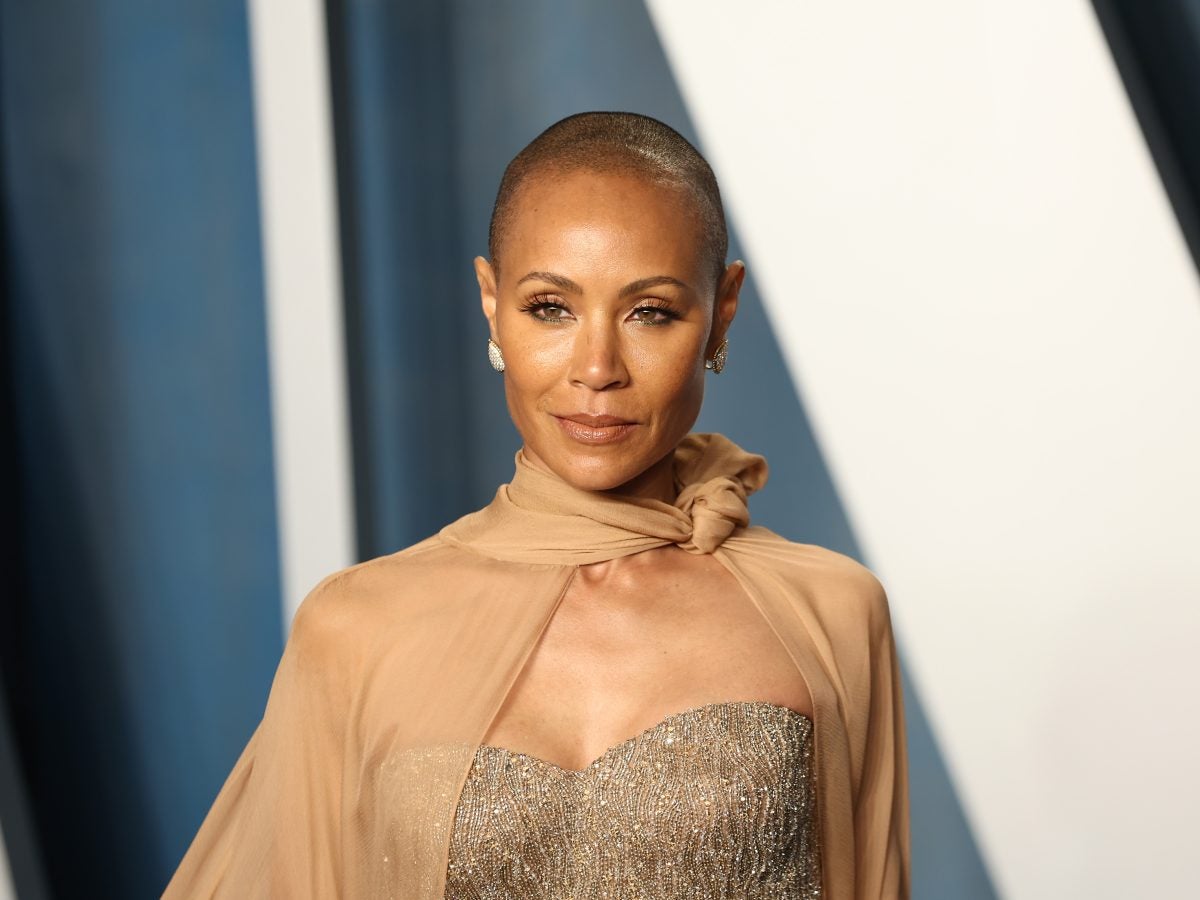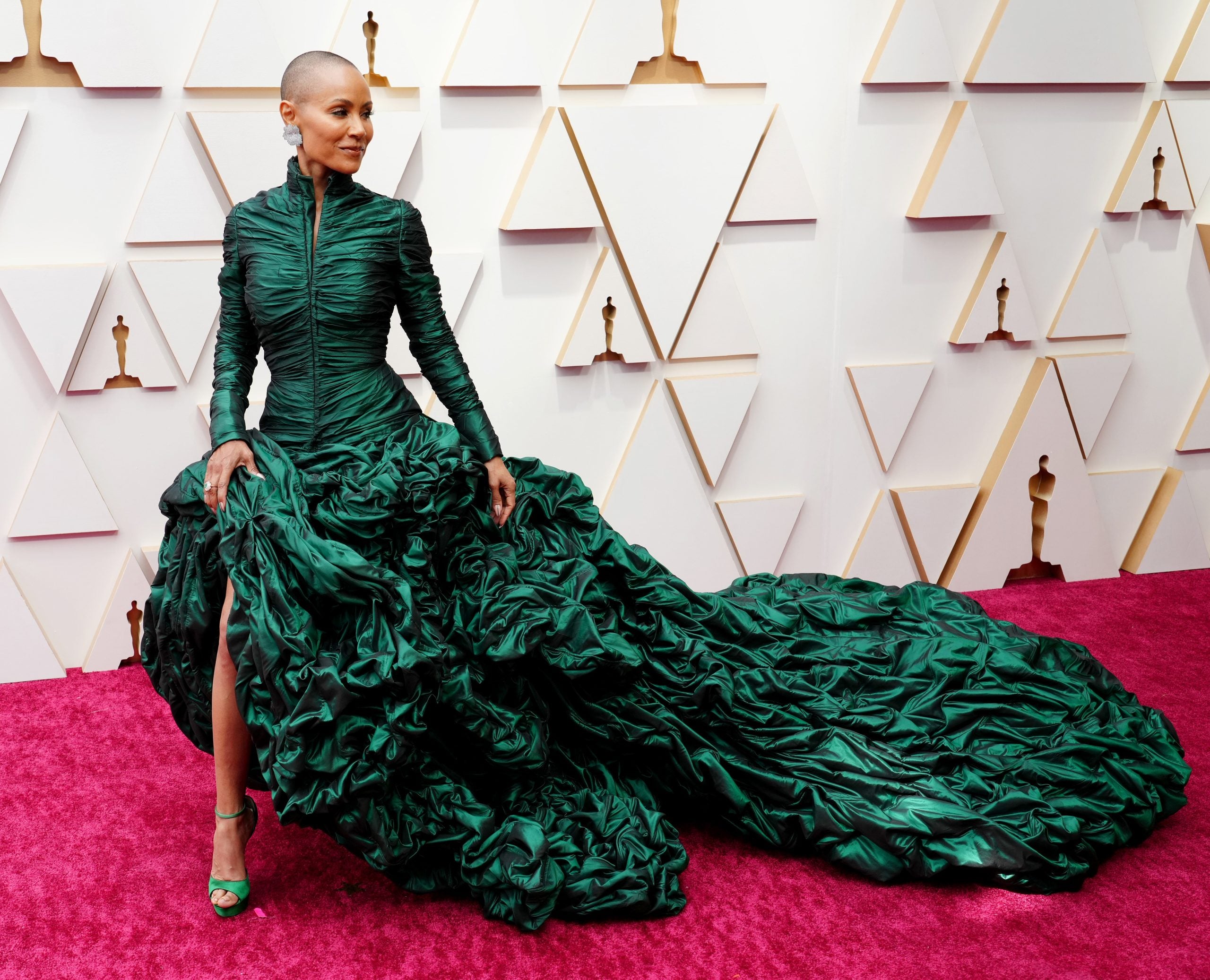
A shocking confrontation between actor Will Smith and comedian Chris Rock at last night’s 94th annual Academy Awards has placed the health condition of actress Jada Pinkett Smith on center stage.
The comment made by the comedian, “Jada, can’t wait for G.I. Jane 2,” poked fun at her short buzz cut hairstyle and referenced Demi Moore’s character in the 1997 film G.I. Jane, which she famously shaved her hair off for. The “joke” didn’t land well with the couple, and as a result, Smith approached the stage, striking Rock across the face.
While the moment floored the audience and viewers at home alike, the altercation has since sparked an even deeper discussion around her diagnosis of alopecia areata, a noncancerous condition that impacts approximately 6.8 million people in the U.S.

In 2018, Pinkett Smith spoke publicly about her experience with the autoimmune disorder in an episode of her Facebook Watch talk show, Red Table Talk, recalling the earliest moments of detection.
“It was terrifying when it first started. I was in the shower one day and had just handfuls of hair in my hands and I was just like, ‘Oh, my God, am I going bald?’” she recounted. “It was one of the first times in my life that I was shaken with fear.”
There are over 20 different types of alopecia, which is the medical term for “hair loss,” and according to Caroline Robinson, MD, FAAD, dermatologist and founder of Tone Dermatology in Chicago, the causes of this condition can vary depending on “genetics, hormone shifts, inflammation, nutritional deficiencies, and other factors. Hair loss can also be an interplay of all of these and is an extremely complex area of medicine.”
She continues, “The form of hair loss that Jada Pinkett Smith is suspected to have is called alopecia areata, which is an autoimmune form of hair loss. The body essentially treats the hair as foreign and fights it with inflammation. This makes growth in the area very difficult. We have good treatments but no cure for this and many forms of alopecia.”
Pinkett Smith has used her platform to spread awareness of the condition for years since sharing her diagnosis. In December 2021, she shared a transparent video updating her online community on her hair loss journey and her decision to embrace it by shaving what was left of her hair off.
“Now at this point, I can only laugh,” she said, pointing out a completely bald line on her head. “Y’all know I’ve been struggling with alopecia and just all of a sudden, one day, look at this line right here.”
Her caption punctuated her self-declaration, reading, “Me and this alopecia are going to be friends…period!”
“It was very courageous of her to come forward about what she was dealing with because whenever that happens, where a celebrity is vulnerable about a medical condition, it definitely always opens the floodgates for others to feel comfortable about sharing and seeking help,” says Yolanda Lenzy, MD, MPH, a board-certified dermatologist and owner of Lenzy Dermatology in Chicopee, Massachusetts.
With the length, texture, and styles of Black women’s hair being attached to one’s identity, the impact of hair loss for Black women can be devastating. Although Pinkett Smith isn’t a stranger to rocking short cuts, shaved mohawks and wearing stylish turbans and wraps, finding the freedom in embracing the condition is a choice Lenzy says shouldn’t lead to public shaming or mocking.







“Research that the Black Women’s Health study found amongst almost 6,000 women is that 47.6 percent of the Black women surveyed have experienced hair loss at some point in their life. This is a huge problem. I like to highlight that statistic so people see the gravity,” Lenzy says. “Some people may say, ‘What’s the big deal? Why would she be hurt?’ This is a huge thing and it’s something everyone can see.”
While some women with this diagnosis choose to honor their privacy and don’t disclose their condition, opting to wear wigs, others, like Smith and Rep. Ayanna Pressley are bravely open about it. But whether one is private about it or public, it goes without saying that commenting on the appearance of others can have a negative effect. Dermatologists like Dr. Lenzy say that they’ve witnessed the way a client’s self-esteem can be shaken by hair loss. For that reason, we all have to be more mindful of what we say and the way our comments can impact more than just the intended target.
“Some people make the decision to cover [alopecia areata] up with wigs. But to make the bold move to let it flow and allow the process to be visible to everyone takes great courage and great strength,” Lenzy says. “So on Hollywood’s biggest night, to be the butt of a joke was sad and unfortunate.”











